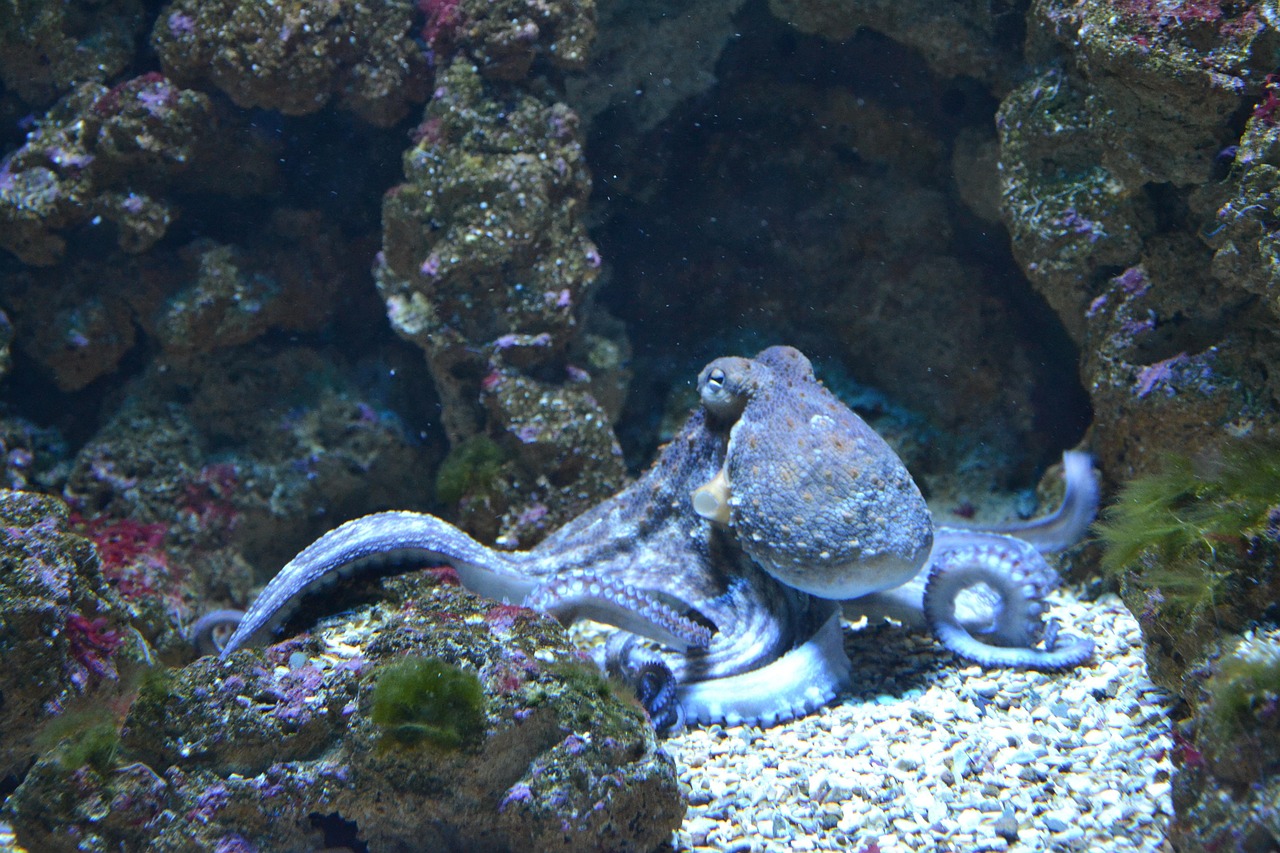Unraveling the Underwater World: The Intricacies of the Octopus's Intelligence
Introduction: When it comes to marine life, the octopus stands out as one of the most fascinating creatures. Its intelligence, adaptability, and problem-solving abilities are unparalleled in the underwater world. This article delves into the complex intelligence of these captivating creatures, their consciousness, and their unique behaviors.

The Remarkable Intelligence of Octopuses
Octopuses are renowned for their exceptional cognitive abilities. Research has shown that these invertebrates demonstrate learning abilities, problem-solving skills, and even the capacity for play. Octopuses have been observed opening jars to access food inside, mimicking other species, and using tools - a characteristic typically associated with higher mammals. Their intelligence is believed to have evolved from their need to outwit predators and hunt elusive prey.
Anatomical Enhancements Enhancing Cognitive Abilities
The octopus’s brain structure significantly contributes to its impressive cognitive abilities. Remarkably, two-thirds of an octopus’s neurons are located in its arms, which allows it to taste and touch its environment, solving problems and making decisions independently of its central brain. This distributed nervous system allows for a higher level of sensory perception and motor control.
Communication and Camouflage: A Unique Behavioral Strategy
Another aspect of the octopus’s intelligence is their sophisticated communication and camouflage techniques. They can change the color and texture of their skin instantaneously to blend in with their surroundings, a defense mechanism that also aids in hunting. Recent studies have also suggested that these color changes may serve as a complex communication system, although this theory remains under investigation.
The Consciousness Debate: Are Octopuses Self-Aware?
A controversial question in the scientific community is whether octopuses possess consciousness. Some experts argue that their problem-solving skills, tool use, and learning capacity indicate a level of consciousness. However, others contend that these behaviors are merely instinctual responses to environmental stimuli. The debate continues, highlighting the need for further research into this fascinating species.
The Octopus in Today’s World: Conservation and Market Impact
The increasing demand for octopus as a culinary delicacy has led to overfishing in certain regions, threatening their populations. There are also concerns about the ethical implications of consuming such an intelligent creature. On the flip side, the intriguing intelligence of octopuses has sparked interest in robotics and AI development. Their flexible bodies and decentralized nervous systems are inspiring novel designs in soft robotics, potentially impacting the market with a value of billions of dollars.
In conclusion, the octopus is a creature of remarkable intelligence and adaptability. Its unique cognitive abilities have sparked scientific interest and debate, prompting further research into its consciousness and potential applications in technology. As we continue to unravel the mysteries of the octopus, we must also consider the ecological and ethical implications of our actions towards these fascinating beings.






